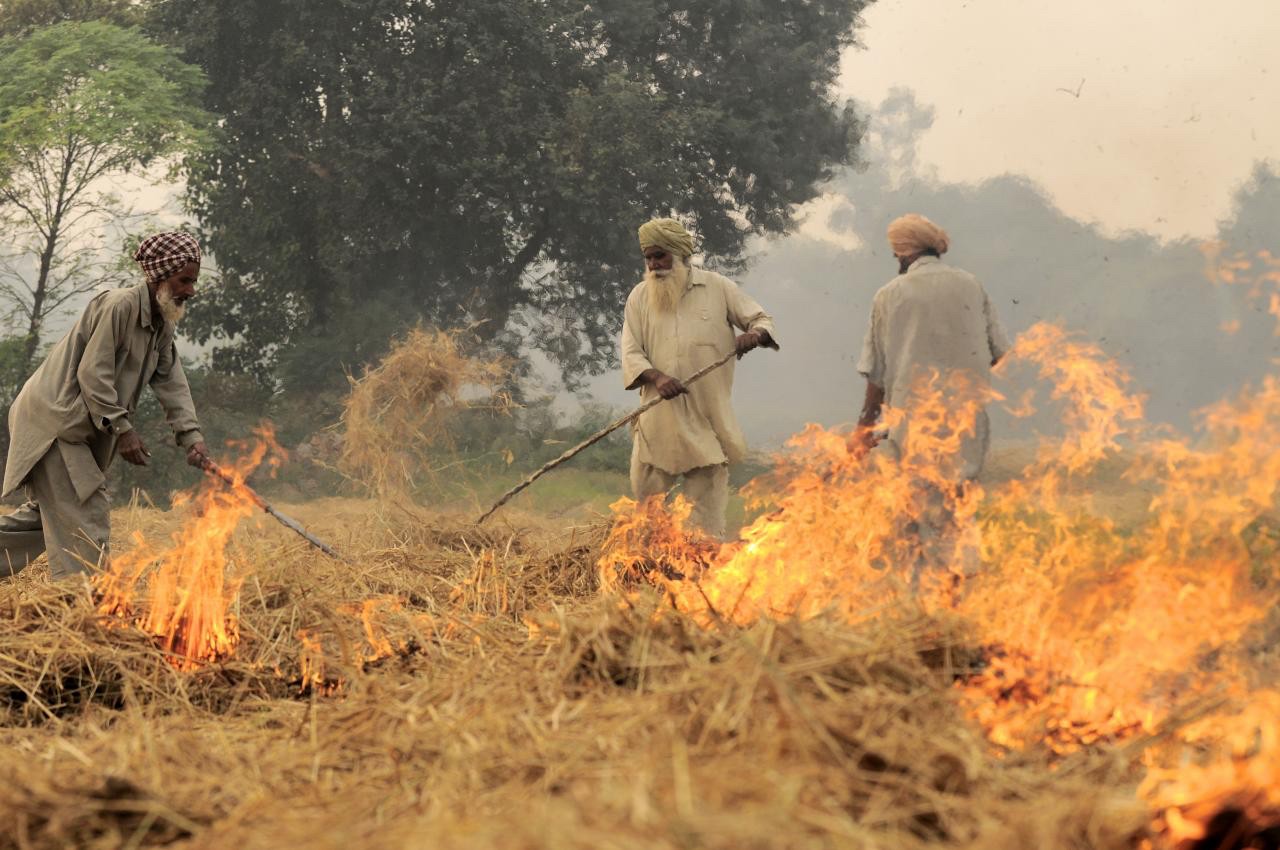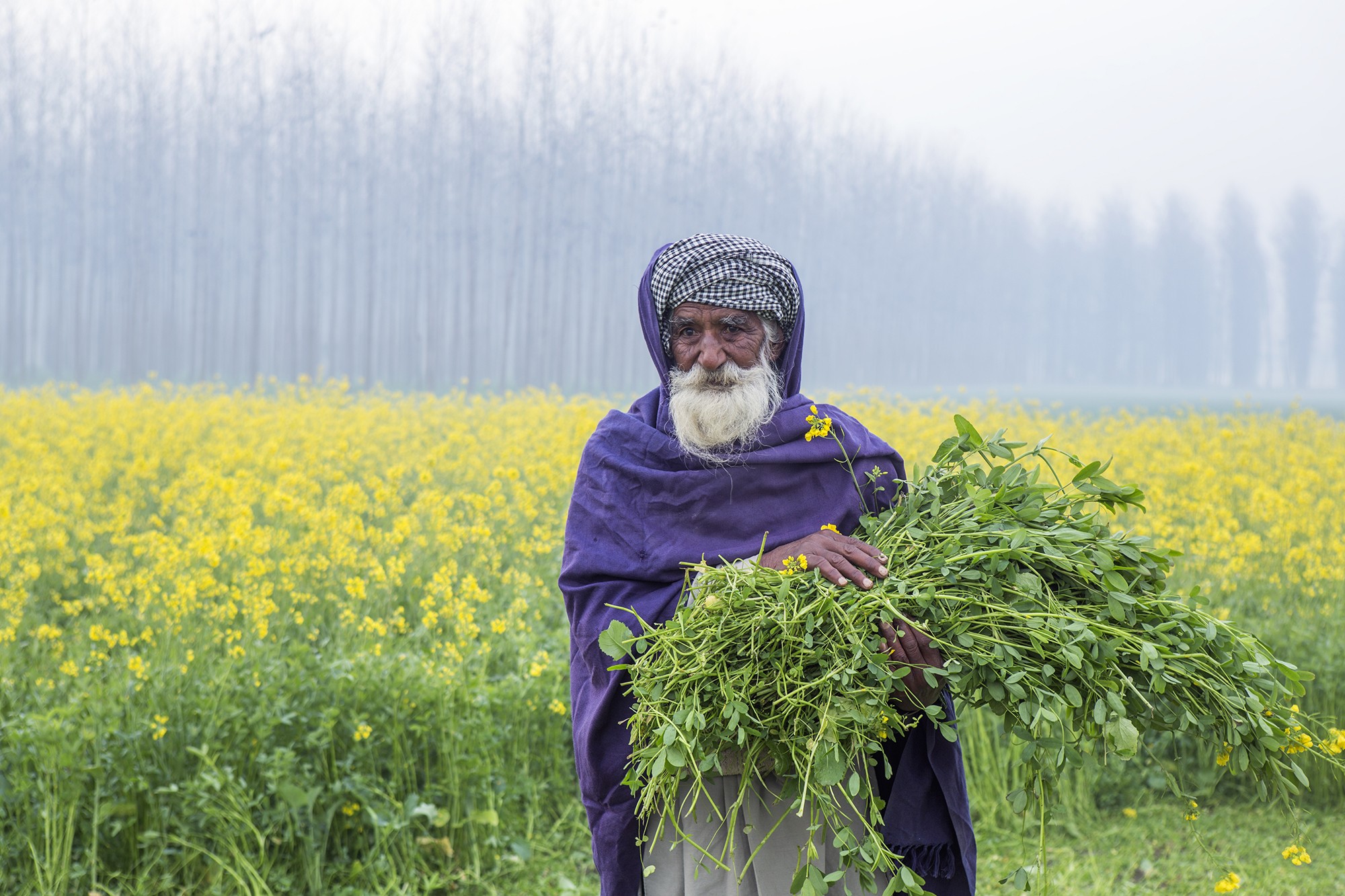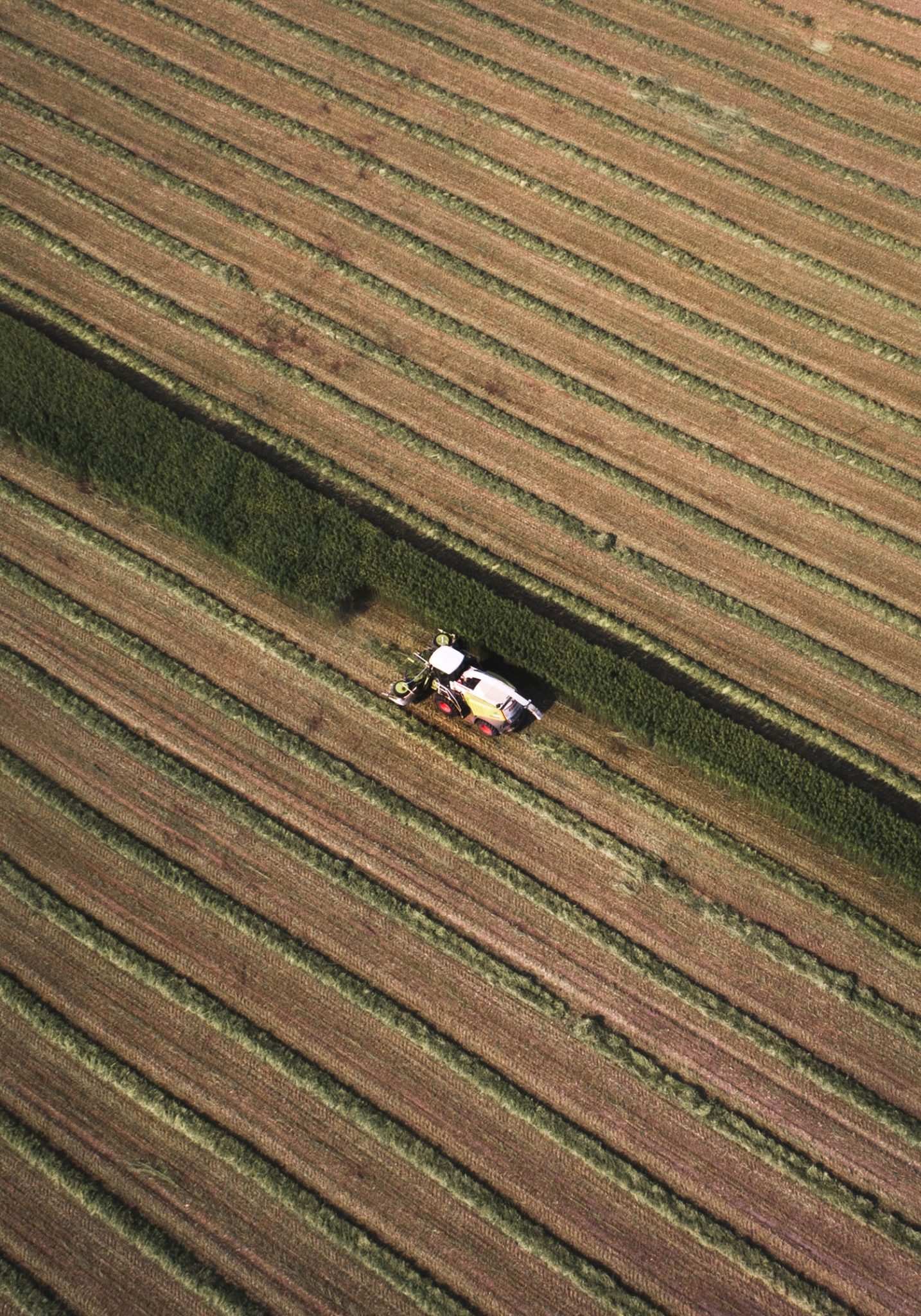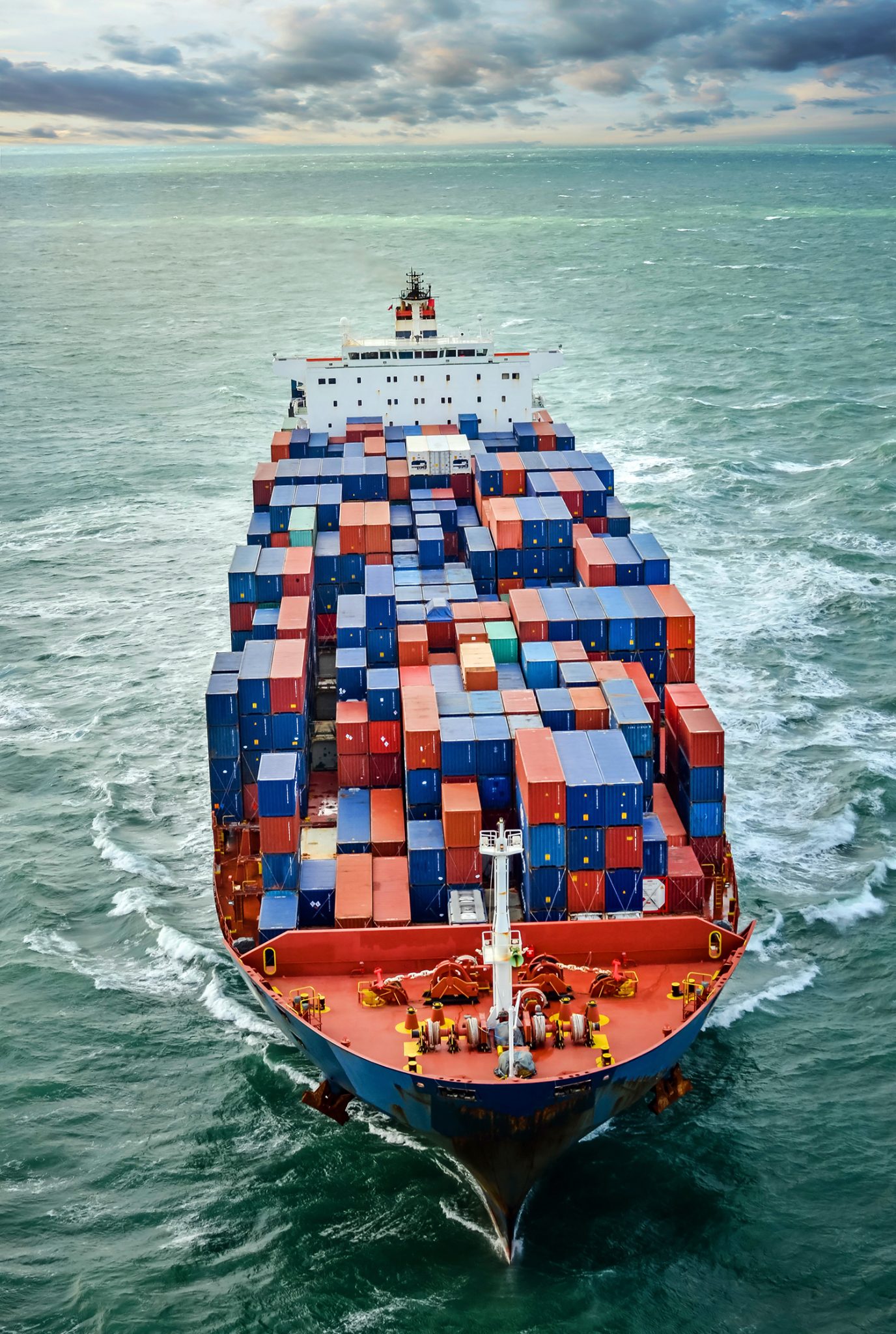The co-op movement is committed to the UN’s sustainable development goals – the second of which is “zero hunger”, calling for the world to be fed – in a sustainable manner. It’s ambitious goal, balancing a fair and reliable food supply with the need to tackle climate change and protect forestry and other delicate ecosystems.
This adds to pressure on an global industry which faces environmental changes, price volatility, technological advances, fierce market competition and – in the UK and Ireland – Brexit. Here, we look at how agri co-ops are prepared for some of the key issues of the day …
Environment and sustainability
Severe weather incidents – linked by many to climate change – are affecting farmers around the world; last year European dairy co-op Arla announced it was giving all its profits to farmers hit by drought and in the US, farm co-ops are taking measures to help members affected by floods.
In Thailand last month, the ministry of agriculture and co-operatives announced a programme of assistance for drought-stricken farmers, after declaring the affected area a disaster zone.
Deputy minister Thammanat Prompao, said this would mean filling reservoirs through rain-making aircraft, and using army technicians to drill for groundwater.
The government will also offer compensation and debt relief to farmers, with funding, career development and water resource programmes being drawn up for members of the 734 co-ops which have registered interest in the scheme.
Meanwhile, in India’s Karnataka, Kerala, Maharashtra, Andhra Pradesh and Goa regions, farmers are being given help after severe floods.
Alongside mitigation comes prevention, stubble burning has been a major factor in severe air pollution affecting cities like Delhi – but farmers’ co-ops in Haryana, Punjab, UP and NCR have worked together to reduce the practice.

Trilochan Mohapatra, director general of the Indian Council of Agricultural Research, says the coordinated effort by the co-ops saw a huge reduction in crop residue burning last year – with nearly 3,500 co-ops in the state of Punjab along working to check stubble burning in 8,000 paddy growing villages.
Addressing media in New Delh, Mohapatra said the paddy residue burning events have reduced by 15% and 41% in 2018 as compared to that in 2017 and 2016. And more than 4500 villages in Punjab and Haryana have been declared Zero Stubble Burning Villages during 2018, with not a single crop burning incident reported.
Awareness campaigns have been conducted through thousands of demonstrations, putting up hoardings, banners and wall paintings all across the states, and mass awareness programmes in village in schools.

In other agri sectors, livestock farming is a particular area of concern, with the UN estimating that it accounts for 18% of the greenhouse gases that contribute to global warming. As reported in Co-op News, agri co-op organisations like the Scottish Agricultural Organisation Society (SAOS) are working with researchers to develop more sustainable animal feed which will lower emissions.
But co-ops elsewhere have been accused of being too slow to take up the baton – for instance in Ireland, where farm co-ops have been urged to promote the use of protected urea and low-protein meal. Denis Drennan, chair of the Irish Creamery Milk Suppliers’ Association (ICMSA), has told the Irish trade press: “We’re beginning to become a little concerned about the disconnect between co-ops’ stated position on the need for more climate-efficient farming and the reality.
Related: Agri co-ops respond to the eco challenges of the 21st century
“Increased use of lime and protected urea on farms alongside using meals with lower crude protein contents at grass are areas we should focus on to lower greenhouse gas emissions on farms.
“We do not consider any of those changes to be controversial among farmers – but we need co-op support, particularly at the ‘sales’ end, to encourage their uptake.”
He added that, while there has been “noisy agreement” from co-ops on changes that are needed, “at store level we’re just not seeing the sales staff actively offering the environmentally safer products and giving the farmers the positive choices that they should be offered”.
He added: “There is a perception of a conflict of interest among co-ops where – on one hand they want to see milk produced more sustainably, but on the other hand strive to make easy sales.
“It is only to be expected that individual salespeople are more concentrated on reaching their targets rather than offering their customers the best options that we all know must be actively promoted.”
Mr Drennan said that while the ICMSA supports other climate-friendly measures such as solar panels and variable speed pumps, it is still important to get the basics right.
“We need to see the co-ops really pushing and actively promoting feeds with less crude protein while at grass, and the spreading of protected urea. And that message has to go down to the sales staff,” he added.
In New Zealand, leading dairy co-op Fonterra has pledged action. The government has introduced a Climate Change Response (Zero Carbon) Amendment Bill which aims for a 10% reduction in biological methane by 2030, and 47% by 2050.
Fonterra said it was ‘committed to doing its bit’ in New Zealand’s transition to a low-carbon future but warned about the challenges this would bring to the farming industry.
CEO Miles Hurrell said: “Kiwi farmers are already some of the most emission efficient producers of milk in the world, but the fact is that nearly half of New Zealand’s greenhouse gases come from the wider agriculture sector.
“Our actions today will keep New Zealand at the forefront of sustainable food production. We know this means some of the ways we farm will need to change. Fonterra farmers are adaptable and resourceful people. Once set a clear science-based target, they will want to get on with the job and the co-op will be there to support them.
“It’s not going to be easy. It will require farmers, industry, government and researchers to all pitch-in and jointly develop innovative, yet practical solutions for New Zealand’s emissions reduction challenges. The increased investment in research and development signalled by the government and industry is key to bringing new innovations to life.”
Fonterra argues the 2050 target should be based on official scientific advice and set at the lower end of the proposed range – and wants it regularly reviewed against the science and options available to farmers.
Full report on Fonterra’s environmental pledge here
In the UK, sector body Co-operatives UK has been working with the Esmee Fairbairn Foundation – which makes grants to socially beneficial organisations – to try to put more support in place for agri co-ops.

Richard Self, agriculture manager at Co-operatives UK, says Esmee Fairbairn has been focused on sustainability and wants to carry out research on how co-ops can help.
“I think it’s something we’ve got to look at more,” he says. “Co-ops need to give leadership to their members. Members don’t always know what’s in their best interest – professional leaders should look at the market, look at what’s happening and say this is where you need to be, this where you should be going. Part of that is sustainable production and what better way to do that than through co-operatives?”
Co-operation vs competition
The threat of large-scale factory farmers is a real one for traditional farmers; recently, Eamon Corley of Ireland’s Beef Plan Movement – a farmer-led campaign to restructure the industry – told broadcasters the country’s “family farms will be replaced by factory farms similar to what is in South America … Beef farmers are being driven off the land and we see the problem has been created by corporate greed.”
Mr Self says strong multinational competitors are also a concern in the UK – which lags behind Europe when it comes to the size of its agri co-op sector.
“We’ve been working with Esmee Fairbairn on a project to help farmers with co-operation,” he says. “In terms of market share for co-ops we’re way out of step with the rest of Europe, and the rest of the world as well. We don’t make use of co-operatives like our colleagues do in Europe.
“Our low market share gives the multi nationals who dominate the market the power to put prices up or down – and they’ve got no real competition.
“I argued for some support from Esmee Fairbairn to help with that, and they have asked for research to show how we’re not making use of the co-op model, to demonstrate that it has benefits, and to show how we can go about improving it.”
To that end, Co-operatives UK has commissioned independent research, due in October, from the Royal Agricultural University, to support its case for more support for new and existing agri co-ops.
“There’s evidence that co-ops help farmers reduce volatility in price and improve returns,” says Mr Self. “What we don’t want to do is set up loads of new co-ops that are in competition with existing ones – but where we identify a need, we can help develop new businesses.
“From a cost effectiveness point of view, if you want to grow the co-op market share the best way is to help existing ones develop. A lot of them are very risk averse and tend to settle into a situation where they provide a reasonable service to members and aren’t interested in growth – which is fine if that’s the right thing to do.
Mr Self is also keen to improve perception of co-operatives, with the agri sector hit by some high profile failures.
“Some people are being negative about co-operatives because of a few bad examples,” he says, “but statistically co-ops have a much better survival rate than an ordinary businesses so we need to show them all the positives case studies as well. If we can get some more support funding we can do that.”
Governance is key to improving this reputation, he argues. “We want to help co-ops review their governance on a systematic basis and not get complacent.”
He adds: “Some farmers don’t want to get involved because it’s too much hassle, too much risk … but co-ops, unlike individual farmers, have more power in the supply chain and can negotiate better deals; a farmer working alone has to take the price he can get.
“In France, grain co-ops do better because they often own their whole supply chain, and have their own mills; if you are going to wave goodbye to your crop at the door you get the bottom price but if you control your marketing through a co-op you’re in a stronger position.”
Ruth Edge, chief food chain adviser at the National Farmers Union, says the industry faces “hugely challenging times – there’s been huge uncertainty in the market and obviously that will affect some sectors more than others”.
And farmers are “under more scrutiny than ever”. she adds, with pressure on issues such as the environment, animal welfare, traceability
and productivity.
Collaboration “definitely plays a part” in helping farmers cope with these challenges, she says, allowing them to work together to pool resources and establish benchmarking of standards.
“We wouldn’t necessarily stipulate a co-op over another format for collaboration, such as a producer organisation or informal buying group, but co-ops would definitely be a part of this process”. she adds.
Asked why the UK lags behind Europe when it comes to co-operative organisation, she says: “Certainly, if you look at what’s been acheived
on the continent we haven’t seen that same take-up within the UK – there are some cultural differences there.
“And there are some challenges; we are articulating the benefits of those different collaborative set-ups to producers but the process can seem a bit big and bureaucratic and scary. There are some loops to got through to set up a co-op, so you might question why you’d want to do it – but there are benefits.”
To help farmers form co-ops, Ms Edge says “some kind of support would help” but it’s also important to demonstrate “concrete reasons” for them to make the move – whether this is to access funding, deliver efficiency savings, or offer a route to a new supply chain.
Brexit and the Defra fund
Another consequence of Brexit is that a that agriculture ministry Defra has had to delay a £10m fund to support farmer collaboration, announced three years ago, to put civil servants onto Brexit planning.
“We’ve been very positive about that fund,” says Ms Edge. “We’re frustrated it still hasn’t come to fruition; we still have not had that money
come through.”
Mr Self is also keen to see the collaboration fund move into action.
“They’re starting to pick up on it a bit,” he says. “This is something I’ve been arguing for since the referendum, is to say that post Brexit we’re going to need better stronger co-operatives and we need some support to make it happen.
“In Scotland co-operation is stronger because they have the Scottish Agricultural Organisation Society; it shows if you support co-operation for a long time, it will thrive – and this is what we want Defra to do.”
He hopes the fund will open in spring or summer next year, “which would fit nicely with the Esmee project”, adding: “In five years time I’d like to see a scheme to support farm coops in all their forms, an increased market share – and an agriculture industry that is surviving.”
This a concern post-Brexit, says Mr Self. “If they go for zero tariffs on incoming products it will be very significant for the sector; a lot of farmers will not survive that – but also we won’t be a member of the Common Agricultural Policy and the direct payments farmers are getting could go away to nothing by 2025.
“If you take away those payments, something like 80% of farmers could be losing money. We’ll be paying high tariffs on expects, we’ll have zero tariffs on imports to reduce food inflation in the supermarket, plus the removal of payments.”
This situation could stimulate farm co-ops, he adds. “One reason why we haven’t co-operated so much is because we haven’t needed to. Now farmers are talking about the need to co-operate more after Brexit. We need to try to use Brexit as an opportunity – we’ve got a lot of workshops as part of research project, to get farmers to think about how they can work together and have a bigger impact.”
Cecilia Pryce, head of compliance, shipping and research at grain marketing and arable inputs co-op Openfield, says there are serious concerns around Brexit but sounds an optimistic note.

“EU and UK cereals have been trading as an international commodity for a number of years. If somebody’s hungry, they’ll pay for grain if it’s the correct price. If something’s cheaper elsewhere they’ll go somewhere else. But we in the UK have full traceability, a fully assured product, fantastic varieties and can provide most of the things international buyers want. As much as Europe is currently and historically has been, our major export destination, there are other global alternatives.”
But there are still hurdles: if Openfield ships to more distant markets, economies of scale mean the ships’ sizes are likely to get bigger – which could involve switching logistics to deep sea grain ports away from smaller facilities currently used for nearby EU shipping.
“There will be a logistics change but I don’t believe it will be a disaster,” she says. “Yes, there will be a bigger haulage cost for some, but the doors aren’t going to close on trade.” What farmers want, she says, is more certainty as to what and where their markets will be next year – they have only a few weeks to decide what to plant for harvest 2020. “It’s a tough time being a farmer,” she adds, “but if they are willing to engage we can give them all the information we have.”
Cereal producers could also have to face the ‘unintended consequences’ that may happen to other sectors of UK agriculture after Brexit. If a trade deal with the US brings an influx of cheap chicken, driving UK producers to the wall, grain farmers will lose a huge market for feed. Conversely, a trade deal with China could spark a demand for UK pork exports, stimulating demand for animal feed.
Knowledge is key to handling this volatile environment, says Ms Pryce. “There are so many variables when it comes to pricing commodities but they have always been there, we just have to make sure we have the best produce, priced correctly. We all have to perform to the best of our ability, and I believe we can do it – we just have to be a bit more streetwise, and be more aware of what’s going on with global prices and how they impact our markets.”
And against this backdrop, the co-op model offers farmers an element of security and solidarity, she says. “I’d like to think it gives them the security of knowing we look after them. They’re individuals, they’re not just numbers. We know who our members are and we will do our best for them – global buyers like dealing with first hand grain and we are here to market their grain the best we can.”

